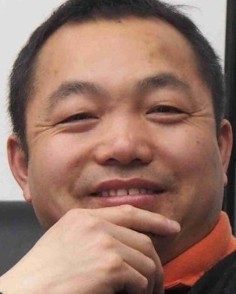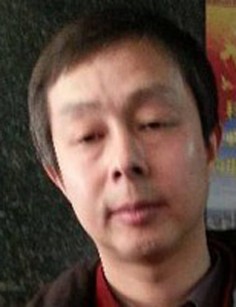
Anti-graft activists stand trial in Beijing under heavy police guard
New Citizen movement members had called for officials to declare assets
The trial of two activists accused of disturbing public order after urging officials to reveal their assets began yesterday, the latest in a series of cases brought against anti-graft campaigners despite criticism from the West.
The trials of members of the New Citizen movement have sparked criticism from the United States, Europe and rights groups as evidence of the governing Communist Party's determination to crush any dissent to its rule.
The government has waged a year-long drive against the movement, founded by Xu Zhiyong, a prominent rights activist, who was jailed in January for four years.
The two activists put on trial on yesterday - Ding Jiaxi and Li Wei - advocated working within the system to press for change, including urging officials to publish details of their assets.
They were charged with "gathering a crowd to disturb public order", for which the penalty is up to five years in prison.
The trials in Beijing were the second for the activists.
Asking officials to disclose their assets is a perfectly legitimate
The first trial, in January was aborted after the defendants dismissed their lawyers and one of the lawyers voluntarily withdrew his defence because of improprieties in the judicial proceedings.
Sui Muqing, a lawyer representing Ding, said a conviction for his client was nearly inevitable, even though the activists' actions were legitimate.

Police blocked reporters from approaching the courthouse and harassed Sui after he was inter viewed.
They also barred a group of diplomats from entering the courtroom, telling them that the trial was not open to the public.
"The way they have handled this is certainly not justifiable," said Qi Yueying, a Beijing activist who was detained last April for eight months for joining the same demonstrations as Ding.
"Simply asking officials to disclose their assets is a perfectly legitimate and fair thing to do. When we took to the streets, we did not gather and did not do things that disturbed society."
Police accuse the activists of planning, organising, and carrying out nearly 30 instances of "street political activities", from displaying banners to making speeches urging declaration of assets, according to a copy of Li's arrest notice.

Li's lawyer, Cao Weiping, declined to comment, saying he could not give inter views.
While President Xi Jinping has made battling corruption a priority, the authorities have shown no sign of agreeing to demands for such disclosures by all officials and at least 20 anti-graft activists have been detained.
One more activist, Zhao Changqing, will stand trial tomorrow.
Xu, the founder of the New Citizen movement, has appealed against his conviction and that decision is expected on Friday.

